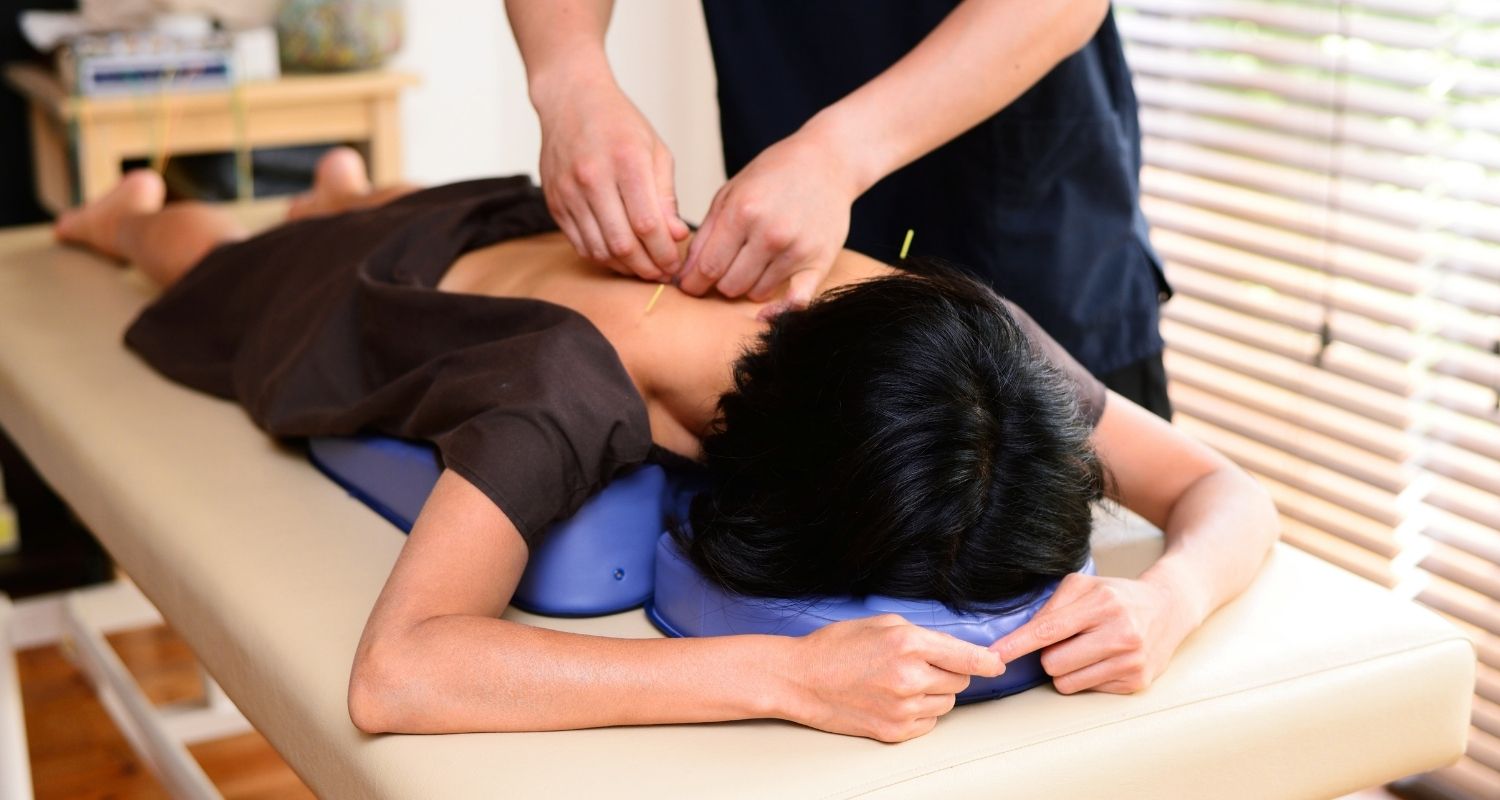Table Of Contents:
- What is acupuncture?
- How is acupuncture performed?
- What do you feel during acupuncture?
- How does acupuncture work on the body?
- How often should I get treatment?
- Which long-term conditions are treated by acupuncture?
What is acupuncture?
Acupuncture is the procedure of putting small, solid metallic needles into the skin. They are then activated by the practitioner’s hands using gentle and specific movements (or by electrical stimulation).
Acupuncture is an old form of Traditional Chinese medicine whose practitioners believe the human body has around 2,000 acupuncture sites linked by channels or “meridians”. These routes allow energy (“Qi”, pronounced “chee”) to circulate through the body, which is responsible for general health. Acupuncture at certain places is supposed to promote the flow of Qi, hence promoting health. Any disease is said to be caused by a disruption in the flow of energy.
How is acupuncture performed?
You will be required to complete a health history form prior to your first session. The acupuncturist will question you about your health issues, food, sleep, stress level, and other lifestyle patterns at the start of your consultation. You may be questioned about your emotions, hunger, dietary preferences and dislikes, along with your reaction to temperature and season changes.
The acupuncturist will carefully evaluate your appearance throughout your appointment, noting each of your complexion, voice, tongue colour and coating. They will take your pulse at three different locations on each wrist – noting its strength, quality and rhythm. The tongue and pulses are said to indicate the health of your organ systems and meridians in Chinese medicine.
Acupuncture often employs 6 to more than 20 small needles each session (the number of needles does not reflect the strength of the therapy). Typically, the needles are kept in for 10 to 20 minutes. For increased impact, the acupuncturist may gently twist the needles.
What do you feel during acupuncture?
Acupuncture is administered using needles that are almost as thin as human hair. The needle is inserted into a pressure point or area of pain. The majority of individuals report experiencing only a little discomfort while the needle is placed. The needles may be heated during the therapy or have a small electric current administered to them. Acupuncture has been reported to revitalize certain individuals.
The FDA regulates acupuncture needles similarly to other medical devices, and they must be sterilized to avoid infection. Incorrect needle insertion might result in discomfort during therapy. It is important to get treatment from a licensed acupuncturist.
How does acupuncture work on the body?
It is reported that acupuncture sites stimulate the central nervous system. As such, chemicals are released into the muscles, spinal cord and brain. These metabolic alterations have the potential to improve physical and emotional well-being by activating the body’s innate healing abilities.
National Institutes of Health (NIH) research has shown that acupuncture is an effective therapy for the following conditions, either alone or in conjunction with conventional therapies:
- Nausea
- Dental discomfort after surgery
- Addictions
- Headaches
- Cramps during menstruation
- Tennis elbow
- Fibromyalgia
- Pain in the myofascial region
- Osteoarthritis
- Discomfort in the lower back
- Carpal tunnel syndrome
- Asthma
How often should I get treatment?
The number of treatments required is determined by the severity of your ailment, and how your body reacts. The majority of patients have a weekly appointment. Others get therapy on a more or less frequent basis, depending on the duration of symptoms. Your acupuncturist will choose the best schedule for you.
You may not experience all of acupuncture’s advantages on just your first or second visit. If you decide to give acupuncture a try, it is recommended that you get at least 5 sessions.
Which long-term conditions are treated by acupuncture?
 Acupuncture can be used to address a wide variety of health problems. The majority of the time, it is used to treat chronic (long-term) pain, such as:
Acupuncture can be used to address a wide variety of health problems. The majority of the time, it is used to treat chronic (long-term) pain, such as:
- Cancer and its treatment-related complications
- Pain in the face and other nerve-related problems
- Immune system dysfunction
- Infertility
- Irritable bowel syndrome
- Hot flashes accompanying menopause
- Discomfort associated with pregnancy
- Disorders of repetitive strain and overuse
To find out more about how you can benefit from acupuncture in the Langley area, visit fraserlifephysio.ca or speak with one of our friendly team members at (778) 278-4755 today.
< Previous | Home | Next >



Recent Comments